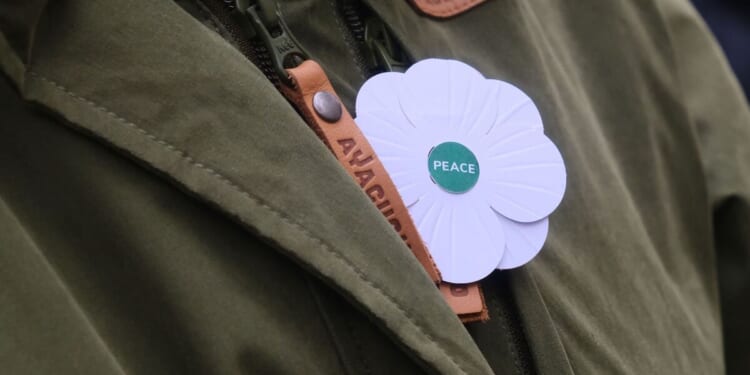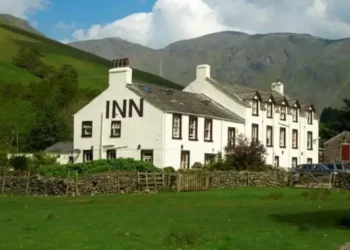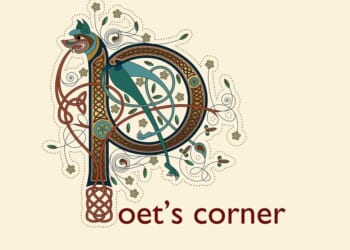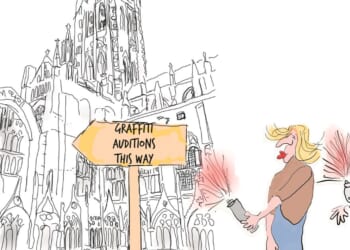An Academy-award-winning actor is set to speak at national white poppy ceremony on Remembrance Sunday, but his support for the campaign has prompted fury from one veteran. Sir Mark Rylance, 65, has publicly backed the Peace Pledge Union’s (PPU) campaign, which has been running since the mid 1930s and promotes pacificism, since at least 2022.
According to the website for the organisation, which distributes white poppies, the symbol is worn in remembrance of “all those killed in war, all those wounded in body or mind, the millions who have been made sick or homeless by war and the families and communities torn apart”. “We also remember those killed or imprisoned for refusing to fight and for resisting war,” as well as military personnel, the non-profit organisation says.
It differs from the red poppies handed out by The Royal British Legion which the PPU says has traditionally said are to remember only British armed forces and their allies.
The RBL says its poppy “represents all those who lost their lives on active service, from the beginning of the First World War right up to the present day. It also recognises the courage of our Armed Forces … and the innocent lives lost through conflict and terrorism.”
In previous comments Mr Rylance, who starred in Christopher Nolan’s Dunkirk won an Oscar for his performance in the Steven Spielberg thriller Bridge of Spies (2015) said Rememberance Sunday, which takes place on Sunday, November 9 this year, should “refocus our every effort to avert war”.
Sir Mark said: “I have always deeply admired and taken part in the white poppy remembrance of both civilian and military casualties of war. Civilians now far outnumber the tragic military casualties.
However, he stressed: “I do not understand the white poppy to be in any way an opposition to the red poppy worn in remembrance of military casualties. Unfortunately wars are fought with and against civilians today and I consider it an offence not to remember their suffering.”
“Remembrance Day should be a day to remember and grieve the great losses caused by war, but it should also be a day to refocus our every effort to avert war with all our tools of peaceful reconciliation of conflict,” Sir Mark added. “Too often in my life, Remembrance Day seems a kind of shoulder shrug that war is inevitable. I do not believe it is.”
The PPU organises an annual National Alternative Remembrance Ceremony and campaigns for “nonviolent approaches to conflict and against all forms of militarism”.
Mr Rylance, a PPU member, will speak at the event in Tavistock Square in central London. During the ceremony, a white wreath and white poppies are laid upon the Conscientious Objectors’ Commemorative Stone to recognise those who have chosen not to fight.
The organisation previously got flack for launching an intiative in November last year seeking to “decolonise remembrance”. The PPU said this was crucial for confronting whitewashed parts of British history, including the many victims of colonial wars. Though some, including former shadow defence secretary James Cartlidge claimed it “would completely undermine” the message of remembering the “sacrifice of those who gave their lives so that we can be free”.
One former member of the British armed forces reacted angrily to Rylance’s continued support for the PPU, with former British Army Officer Colonel Hamish de Bretton-Gordon claiming that Mr Rylance “is very happy to take money to perform in a film like Dunkirk but then just spits in the face of veterans still serving by wearing a white poppy”, The Telegraph reported.
“The poppy is for everybody who suffered and died,” he told the newspaper, saying Hitler saw civilians as combatants, “so does Putin”.
“I can’t express it more determinedly how much I abhor this white poppy lot,” he added.
Col Philip Ingram, a 26-year veteran of the British Army, claimed the campaign was trying to “hijack” Remembrance.
“Every time someone attacks the symbolism of the red poppy and tries to undermine it, it’s like a punch in the gut for a veteran,” he told the paper. “We bite our tongues.. but it hurts every time someone attacks the red poppy.”
The RBL said it “defends the right to wear different poppies, and we welcome all conversations about the meaning of the poppy and the different ways people choose to remember”.
“Our charitable objects are to support those who have served in the British Armed Forces, and their families, and the RBL’s red poppy recognises their service and sacrifice in defence of peace, democracy, and freedom,” the spokesperson added.
“Since 1921, the red poppy has been an enduring symbol of remembrance and hope for a peaceful future, and importantly, it raises vital funds to provide support to those in the Armed Forces community in need.”
Express.co.uk has approached Mr Rylance and the PPU for comment.
In response to criticism of the “decolonise remembrance” campaign, the PPU’s Remembrance Project Manager, said at the time: “When we still see politicians openly celebrating the British Empire, it is vital that we remember the impacts that colonial wars and violence have had – and continue to have – around the globe.
“We need to make space for the victims of colonial wars on Remembrance Day. This involves listening to the voices of those affected by that history and the ongoing impacts of colonialism, both in the UK and elsewhere.
“It involves actively challenging the racist legacies of colonialism that continue to influence whose lives are valued and whose are not.”
















